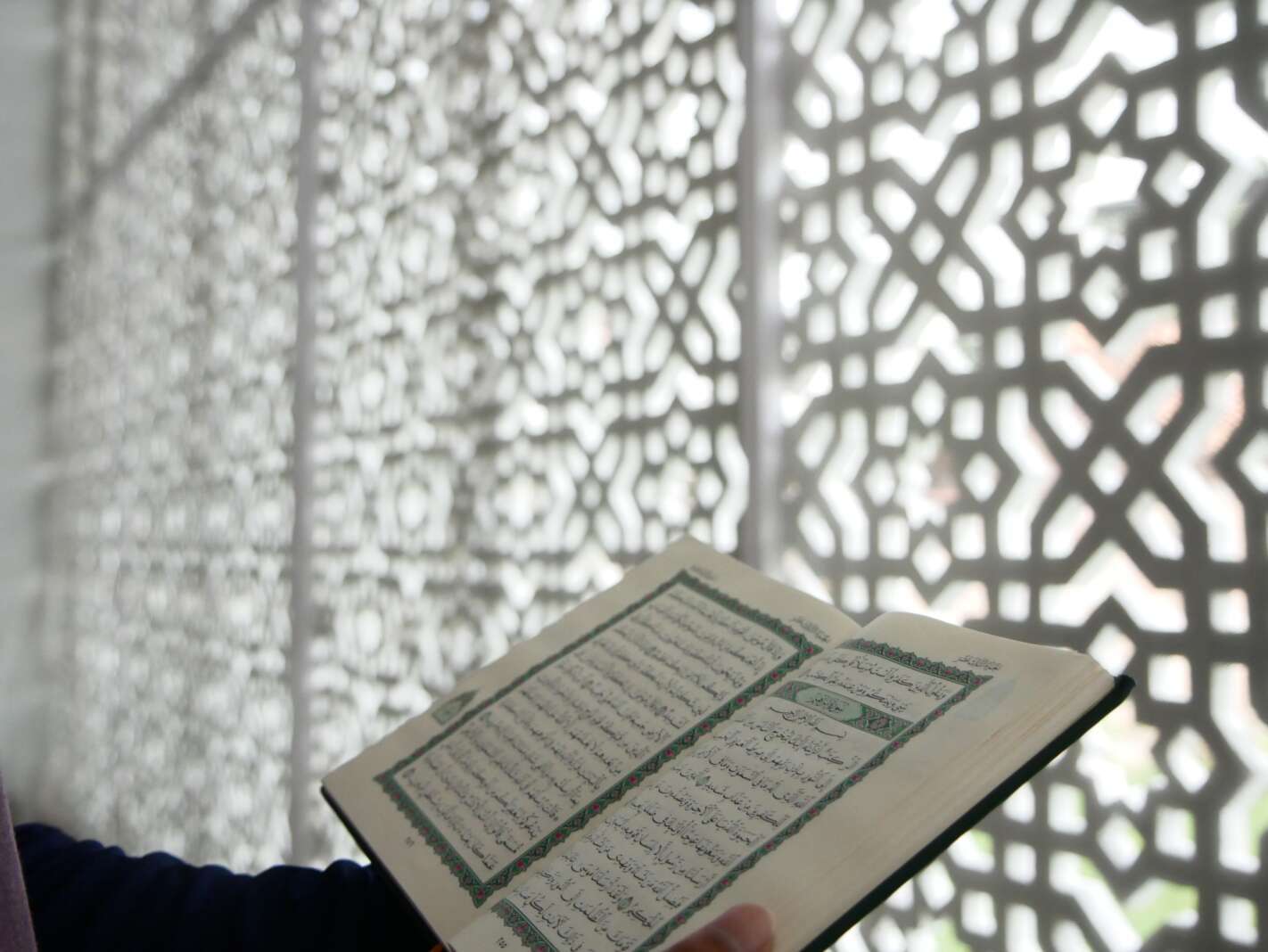The Prophet ﷺ said:
"خذوا القرآن من أربعة: من ابن مسعود، وأبي بن كعب، ومعاذ بن جبل، وسالم مولى أبي حذيفة".
"Take the Qur'an from four people: from Ibn Mas'ood, and Ubay Ibn Ka'b, and Muaadh Ibn Jabal and Saalim Mawla Abi Hudhayfah" [Bukhari, Muslim]
Imam an-Nawawi, in his explanation of the hadeeth said: "the reason is that these four are the most proficient in its pronounciation and the most precise in its application, even though others might be more knowledgeable in its meanings then them. Or it may be that these four companions dedicated their complete time to taking the Qur'an directly from the mouth of the Prophet ﷺ while others took the Qur'an from one another. Or it maybe that these four companions dedicated their time for others to take directly from them. Or it could be, that the Prophet ﷺ was informing of what will take place after his passing, in that these four companions would come forward for this role and be proficient it it, and that they would stay in that position longer than others - therefore the Qur'an should be taken from them".

Dr. Ayman Swayd has defined the Quranic Ijazah as:
عملية النقل الصوتي للقرآن العظيم من جيل الى جيل ، وفيها يشهد المجيز أن تلاوة المجاز قد صارت صحيحة تامّة للرواية التي أجازه بها.
The process of the oral transmission of the Glorious Qur'an from generation to generation, in which the Mujeez (person giving the ijazah) testifies that the recitation of the Mujaaz (the person getting the ijazah) has become completely correct in accordance to the Riwayah (narration) that he is getting an ijazah in.
The Goals of the Program
1. To perfect the recitation of the Riwayah with a permission to transmit it by ardh and talqeen through the processes of Riwayah and Dirayah
اتقان الرواية قراءة والاذن بنقلها عرضا وتلقيناً عن طريقي الرواية والدراية
2. To develop trustworthiness in this field of knowledge - which is to transmit this knowledge with all its fine details
الأمانة العلمية وهي نقل العلم بدقائقه
3. To check and emphasise the required skills and to verify Husnul-Aadaa (excellence in application) in order to be well prepared for the trust that Allah entrusted, and that is to pass on the inheritance of the Book
التدقيق والتأكيد على المهارات والتثبت من حسن الأداء لتحقيق الاستعداد المناسب لما عهد الله به وهو توريث الكتاب.
4. To build up the muslim character that is capable of conveying knowledge
صناعة الشخصية المسلمة القادرة على تبليغ العلم.
The Methodology
To recite the Book Of Allah SWT from its start until its end, at the hands of a proficient teacher (المعلم المتقن ) with training in precision in recitation (الضبط في القراءة ) and perfection in the Riwayah and its Usool (والكمال في الرواية وأصولها).
The Quranic Ijazah program includes the following:
- Important language considerations to be stopped at (أهم الوقفات اللغوية)
- All the Usool of that Riwayah
- Infiradaat Hafs and Aasim
- The Rasm al-Uthmani
- The meanings of some Quranic words and some Asbaab an-Nuzool and general points of benefit and adaab/mannerisms
Course Expectations
Pre-requisites: the successful completion of all tajweed levels as well as the itqaan program. This is in accordance with the curriculum of Jameeat al-Mohafadh ala-al-Quran al-Kareem (جمعية المحافظة على القرآان الكريم)
Also, that the student has completed or is studying the "Usool ar-Riwayah and Faniyaat al-Ijazah" (أصول الرواية وفنيات الاجازة) program.
Duration: unspecified as it is dependent on the progress of the student and the agreement between the Mujeezah and Mujaazah
Assessment: an ijazah assessment which will involve a committee to listen to the recitation (further details in "frequently asked" section).
There is also a hifdh assessment and questions relating to theoretical knowledge.
Frequently Asked Questions
This program is determined by the Mujeezah and Mujaazah and therefore its specified time is based on their agreement and capacity. However, there is a minimum of one class per week.
There are 6 preliminary assessments (مجالس تقييمية ) within the centre with one occuring after every 5 Juzz'. The aim of the assessment is to assess the recitation progress and the understanding of the usool of the riwayah. The mujeezah will receive advise and feedback from the assessment.
At the completion of the Khatm of the Riwayah of the Qur'an, the student is given the Quranic Ijazah of recitation from the Mus'haf by her Mujeezah.
The student then undergoes a formal assessment from an authorised committee from Jameeat al-Mohafadh ala-al-Quran al-Kareem in order to gain accreditation from the organisation.